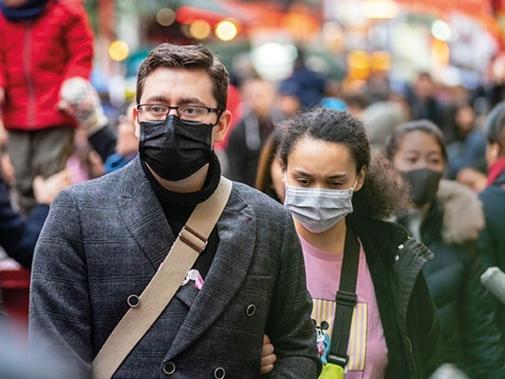Public health medicine has been thrust into the limelight by the COVID-19 crisis.
Its practitioners are on national news, their practice the topic in daily press briefings with chief medical officers and ministers in UK countries and abroad.
It’s a far cry from bad funding and cuts – a specialty too often passed over for stronger pulls on tight budgets.
So how are its practitioners coping as they battle the virus? Will this sudden, intense interest make any difference?
Their views on the capacity of their specialty to tackle the virus are mixed, especially in relation to England whose budget was hardest hit by austerity. Public health funding has shrunk by £850m in real terms compared with 2015/16, according to research by the Health Foundation and the King’s Fund last year.
‘If you look at the current crisis there is certainly clear evidence that the whole public health family is not able to play its full role in terms of solving the crisis because of cuts,’ says retired public health director Heather Grimbaldeston.
Separate entity
BMA public health medicine committee member and past chair Penelope Toff says many public health consultants in England lost ‘considerable’ influence and capacity when transferred in 2013 from NHS primary care trusts to councils.
‘The extent of public health input into commissioning decisions varies greatly across England in this more politically driven context,’ she says.
PHE (Public Health England) appears to have similar difficulties, Dr Toff adds. ‘Its civil service status curbs its ability to offer independent advice, influence ministers, and hampers the sharing of information to the wider public health community.’
The PHMC has long called for public health to be appropriately funded and for PHE to be fully independent of Government.
Not all public health practitioners agree that their capacity is so compromised.
Faculty of Public Health president Maggie Rae says many public health directors played a major role in the ‘highly effective’ programme of tracing contacts of early cases during the containment phase of the pandemic. It lobbied successfully with other organisations for testing to be extended to the many care homes affected.
Prof Rae points to the £3.2bn of extra local government funding as a welcome ‘short-term’ measure. ‘However, we are not aware how much has been allocated to public health priorities,’ she adds. She doubts public health directors in England would support a switch back to the NHS.
‘They have to influence and have to take people with them,’ she adds. ‘Just going back to the NHS would not make them more powerful. Directors of public health have to be able to influence both health, local government and the communities they serve.’
Information sharing
Most public health professionals would, however, likely agree that many lessons will be learned from the huge effort to tackle COVID-19 which could have a significant effect in the long term.
One lesson should be about data and other kinds of information sharing. The struggle to access health data from the NHS is a daily frustration for public health practitioners. It’s a constant reminder of the uneasy degree of separation some feel from NHS colleagues since transferring to local authorities.
For instance, NHS lists of ‘shielded patients’ during the COVID-19 response have not been routinely shared with local authorities despite their role in offering social care and welfare support.
‘This is the kind of on-the-ground stuff that local authorities do,’ says Rob Green, a public health registrar in north west England. ‘If they had got those lists, councils could rapidly contact people for welfare checks. Instead they have to find work-a-rounds, which leads to delays.’
Despite some frustrations, the crisis has prompted some novel practice, such as an agreement to avoid moving patients with COVID-19 to care homes from hospitals.
Dr Green points to other more positive lessons being learned from tackling COVID-19, as public awareness about the cost of health inequalities is heightened.
‘Health inequalities had become so obvious, it felt like they were becoming a political issue. Now, with this virus, people can see it’s those whose health is marginalised in other ways that are suffering the most.’
Like many trainees, he has had to step up and gained unique experience. He helped quarantine the first group of arrivals from Wuhan, in China, where the virus began.
Links between loneliness and health outcomes, which were explored in public health before the outbreak, will have more resonance after weeks or months of imposed social isolation, Dr Green adds.
Renewed purpose
Despite some differences in views on the past, all practitioners we spoke to hope this spotlight on their specialty will ignite a debate on its future.
Dr Grimbaldeston says the last reorganisation in 2013 felt like an afterthought.
‘Suddenly, people are talking about public health so let’s put some ambition into this and be the best in the world. If not now, then when?’
Public health bodies have already been discussing the future of the public health workforce, Prof Rae says.
‘It is likely post COVID-19 outbreak that the function of public health and its resources will be discussed across the UK. This needs to include the Association of Directors of Public Health and other key bodies.’
The BMA is calling for expansion to boost capacity and agencies have been lobbying for more investment in public health.
‘No one in public health is looking for a big well done and pat on the back,’ Prof Rae adds.
‘The public should be given massive credit for taking on the Stay Home, Protect the NHS, and other prevention messages,’ she says.
‘But we are looking to have the resources and influence across the four nations of the UK to marshal all the efforts of society to improve public health and prevent disease.’

